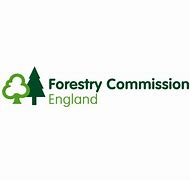
Aim: promoting and supporting
Overview
Research shows that those typically less likely to use outdoor spaces in London include the under 25s, BAME communities, people from lower-income families and D/deaf and disabled people. All Londoners should be supported in playing an active role in the protection, growth and management of the urban forest.
There is great interest in planting trees but less understanding or focus on the need for their long-term management. Promoting London's urban forest includes highlighting the wide range and scale of economic activities can help support the management and development of the urban forest.
There is a large body of good practice, evidence and developing research and innovation on how to protect, manage, grow and support the urban forest. This information needs to be made more clearly accessible, to identify collective priorities and knowledge gaps, facilitate pathway to impact for research, and to share learning between London and other cities in the UK and abroad.
Projects by goal
Goal 9 - Support action from Londoners
Support Londoners in playing an active role in the protection, growth and management of the urban forest.
The Urban Tree Festival is an annual event that usually takes place each May that celebrates urban trees. Activities include a range of ticketed and non-ticketed events including tree walks, poetry and art competitions, and book readings.
TCV are looking to establish a pan-London urban forest community network for community organisations woodland management and maintenance. Currently they are offering community groups advice and training to support good practice.
This work is funded by the Trees Call to Action Fund and is part of the project 'Delivering the London Urban Forest Plan'.
Tree Tools for Schools is run by the Woodland Trust and offers planting plans, tree care guidance and classroom activities.
The Tree Council run a range of seasonal campaigns including the trees love care campaign. The campaign provides lots of advice and resources to encourage people to get involved in the maintenance of young trees.
Goal 10 - Recognise productive potential
Recognise the productive potential of London’s urban forest and support woodland enterprises.
London Wood Enterprise (LWE) is an initiative of individuals, organisations and businesses from across the wood supply chain working together. Membership is free and provides access to LWE events, resources, training and networking opportunities. There is also a directory of contacts for organisations that can help source, extract, sell, process or move wood in London.
Lesnes Abbey Woods has been used as a case study to assess what potential timber production there is on site, the logistics for harvesting and extraction, and the capacity and capabilities to realise this potential. The work will provide lessons learned for other sites and also inform future training opportunities. The case study will be available in 2024.
Funding available
- The Tree Council’s Branching Out Fund supports schools, community groups and Tree Warden Networks to plant trees, hedges and orchards.
- The Orchard Project provide guidance on grant fundraising community orchards.
- You can register your interest in free trees for the future on the TCV website.
- The Tree Council offer free tree starter packs for schools.
Get involved
- Become a young tree champion with the Tree Council.
- Give your class the opportunity to become rangers for the day with Forestry England’s easy-to-use, self-contained Ranger in a Bag.
- Register for the Junior Forester Award to give children and young people an insight into a career in Forestry.
- Discover and enjoy more than 4,000 parks and green spaces across the capital with GoParksLondon, and find out more about the Park Friends groups involved with them.
- Take part in the Urban Tree Festival School Challenge.
- Take part in a whole range of activities run by different organisations as part of National Tree Week (25 November – 3 December 2023) ) or National Hedgerow Week (Spring 2024).
- Find your local Tree Wardens network or approach your council to set one up to join local tree champions who plant, look after and stand up for the trees in their patch:
- Sign up as Tree Supporter to receive a range of news, resources and a supporter certificate from the Arboricultural Association.
- Thames Chase Community Forest have an online calendar showing upcoming events for the month. You can also volunteer at Thames Chase.
Best practice standards and certifications
- The UK Forestry Standard defines the approach of the governments in the UK to sustainable forest management. All forest managers and practitioners in the UK are expected to meet the UKFS Requirements.
- The UK Woodland Assurance Standard is based on the requirements of international forest certification schemes together with those of the UKFS. The principal purpose of UKWAS is to act as an audit protocol for the independent certification schemes, which are paid for by the forest or woodland owner.
- The Woodland Carbon Code is the UK's voluntary carbon standard for woodland creation projects.
The British Standards below outline technical standards relating to trees and woodlands. There are also a suite of British standards that cover the use of operating machinery associated with forestry works.
- Trees in Relation to Design, Demolition and Construction to Construction - Recommendations (British Standard 5837)
- Trees: from nursery to independence in the landscape (British Standard 8545)
- Tree work. Recommendations (British Standard 3998)
- Surveying for bats in trees and woodland. Guide (British Standard 8596)
- Nursery stock - Specification for trees and shrubs (British Standard 3936-1)
Research
- Forest Research is the Forestry Commission’s Research Agency and is the UK’s foremost body for forest and tree related research.
- Arboricultural Journal: International Journal of Urban Forestry is the official journal of the Arboricultural Association. The journal is aimed at presenting high-quality research on urban and peri-urban trees, woods, and forests.
- Forestry is the Institute of Chartered Forester's international journal of forest research that publishes papers on all aspects of research, practice and policy that promote the sustainable development of forests, woodlands and trees.
It's an ongoing area of focus for the London Urban Forest Partnership to identify collective priorities and knowledge gaps, facilitate pathway to impact for research, and to share learning between London and other cities in the UK and abroad.
Funders



Need a document on this page in an accessible format?
If you use assistive technology (such as a screen reader) and need a version of a PDF or other document on this page in a more accessible format, please get in touch via our online form and tell us which format you need.
It will also help us if you tell us which assistive technology you use. We’ll consider your request and get back to you in 5 working days.